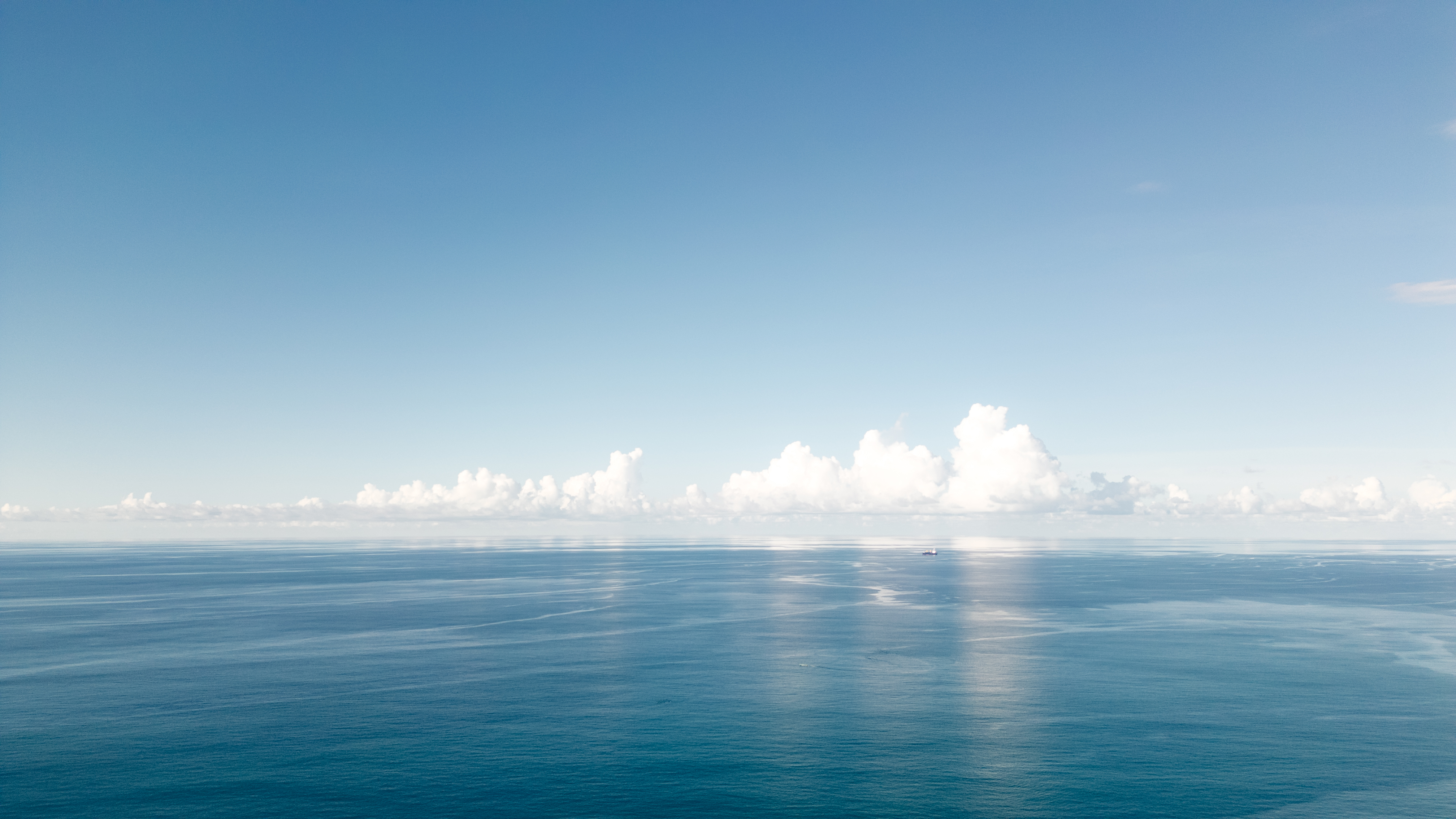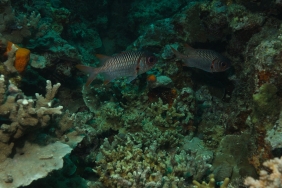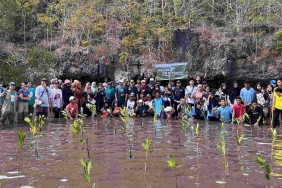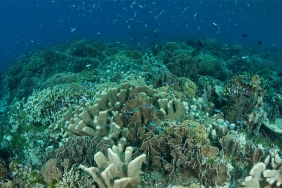WWF FOCUSES ON MANAGING CONSERVATION OF SUNDA BANDA SEASCAPE
By Idoputra Sitompul
It was a sunny afternoon in the capital of the Island of the Gods, Denpasar. Dozens of people came one by one to fill a house with a large yard that was transformed into an office in the center of the city, in the Renon area. That day, Tuesday 23 September 2014, became a historic day for WWF-Indonesia's Sunda Banda Seascape (SBS) program. Through a simple but memorable procession, the beautiful house is now officially a place of work for 15 WWF-Indonesia staff who strive to preserve Indonesia's marine resources, especially in the SBS region.
WWF-Indonesia CEO Efransjah marked the opening of the WWF Regional office in Bali by cutting tumpeng, which was handed over to WWF Singapore CEO Elaine Tan and SBS and Fisheries Leader Imam Musthofa. Efransjah hopes that the opening of the regional office in Bali can help and support the realization of the preservation of marine resources in the Sunda-Banda Seascape which is an important place for various fisheries resources and marine biological resources in the center of the world's coral reef triangle area (Coral Triangle). Some of the work programs that will be promoted by WWF-Indonesia in the SBS region include the management of marine conservation areas, conservation of protected and endangered marine biota species, sustainable management of capture fisheries and aquaculture, and responsible management of marine tourism.
A number of colleagues from several marine and fisheries non-governmental organizations (NGOs) that have often collaborated with WWF-Indonesia such as Reef Check, LINI, TNC, TCEC, MDPI, NDRF and CTC attended the inauguration of this office. Academics, former WWF-Indonesia staff, representatives of the Cruise Ship Network, tour operators, and other marine and fisheries actors were also present and appreciated WWF-Indonesia's work programs that will be carried out in the office. In addition, press colleagues from a number of media in Bali also welcomed the return of WWF-Indonesia on the Island of the Gods.
In addition to inaugurating the office, the event also introduced the responsible seafood product "Fish n Blues". Unlike other seafood products, this product comes from farmed or caught seafood that is environmentally friendly, in accordance with the principles of sustainable fisheries from fishermen groups and or small-scale fish farmers assisted by WWF and also local NGO partners who are members of JARING-Nusantara, a coalition of Indonesian NGOs to promote environmentally friendly seafood products in Indonesia. Some of the products were then processed and served to the guests who came as well as a sign of the presence of environmentally friendly seafood products on the island of the gods that can be ordered online via www.fishnblues.com.
SBS becomes a vital marine area
Sunda Banda Seascape is a term that refers to a geological, as well as geographical area within the Coral Triangle area, which encompasses the sea and several archipelagos from Bali to the Nusa Tenggara region to the Southeast Moluccas, as well as Kupang and then north to the southern and eastern sides of Sulawesi Island. Experts believe that this region has very high levels of marine biodiversity, important habitats for fisheries resources, and both opportunities for utilization and vulnerabilities. Through a ranking assessment that assesses the importance of a site, the area was ranked 2nd and 3rd after the Papuan Bird's Head Range (West Papua and parts of Papua). The SBS area is a high conservation priority because it is home to 76% of known coral species, more than 3,000 fish species, and several endangered species such as sea turtles, cetaceans (whale/dolphin group), sharks, dugongs and other fish species that have high economic value, such as tuna, reef fish, shrimp, napoleon (Humphead wrasse) etc.




